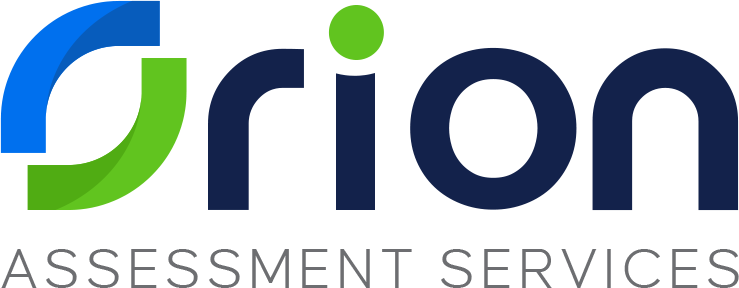ISO 27001: Information Security Management
At Orion, our team of experts will guide you through the process. Our knowledgeable and personable auditors will make this a rewarding experience to help strengthen your internal controls. Outputs from the certification process will highlight your strengths, weaknesses (non-conformances) and any opportunities for improvement.

Why Work with Orion on ISO 27001
Orion has a long track record in providing certifications that address information security concerns in an increasingly interconnected, cloud-based world.
We are currently the only firm endorsed by three industry associations to audit their members, and we reward this trust by only using auditors that have an overall customer satisfaction rating of 99% or better. Our auditors have over 15 years of auditing experience, making them seasoned and proven professionals.
Our vast and lengthy experience means that we truly know and understand the IT industry, including its typical processes, commonly used software, and industry terminology. As a result, our auditing services are efficient and effective, and we will work with you to establish mutual goals up front to make sure your needs are fully met. If you are looking to certify to multiple standards, we also provide integrated audits so you that can achieve certification to multiple standards in one audit (e.g. ISO 27001 / ISO 9001 / ISO 14001 / ISO 45001 / ISO 17100 / R2), ultimately saving you both time and money.
The Importance of ISO 27001
The global business landscape continues to evolve rapidly. Remote and hybrid work models, widespread adoption of cloud platforms, and increasingly complex supply chains have expanded the attack surface for organizations worldwide. Sensitive data now flows across multiple environments—on-premises, cloud, and personal devices—making robust information security management more critical than ever.
Cybercrime remains a growing threat. Recent industry forecasts show that global cybercrime costs are projected to reach $11.9 trillion annually by 2026, and could climb to $19.7 trillion by 2030 (Cybersecurity Ventures Global Cybercrime Report, 2024) , making cybercrime one of the largest economic forces in the world—comparable to the GDP of major nations. This surge is driven by increasingly sophisticated attacks, including ransomware, phishing, supply chain compromises, and AI-enabled exploits.
These costs encompass far more than ransom payments: they include theft of intellectual property, financial fraud, operational downtime, regulatory fines, and reputational damage. For organizations, the consequences extend beyond financial loss—breaches erode customer trust, disrupt business continuity, and create significant legal and compliance liabilities.
Against this backdrop, ISO/IEC 27001 stands out as the internationally recognized standard for building and maintaining an Information Security Management System (ISMS). The latest version, ISO/IEC 27001:2022, and its anticipated 2026 updates emphasize:
Risk-Based Approach: Organizations must identify and assess risks to critical information assets and implement proportionate controls. This approach ensures flexibility and scalability across diverse environments, including remote work and cloud infrastructures.
Enhanced Cybersecurity and Privacy Focus: The standard now explicitly addresses modern threats such as cloud vulnerabilities, supply chain risks, and remote work security. Annex A includes updated controls for areas like threat intelligence, secure authentication, and ICT readiness for business continuity.
Integration with Emerging Technologies: With AI-driven systems and automation becoming mainstream, ISO 27001 aligns with frameworks like ISO 42001 for AI governance, ensuring ethical and secure deployment of advanced technologies.
Continual Improvement: ISO 27001 is not a one-time certification but a cycle of monitoring, reviewing, and improving security measures to adapt to evolving threats and regulatory requirements.
For organizations operating in today’s digital economy, ISO 27001 certification is more than compliance—it’s a strategic investment. It demonstrates commitment to protecting sensitive data, supports regulatory alignment (GDPR, NIS2, DORA), and builds trust with customers and partners.
Breakdown of the ISO 27001 Standard
Like other ISO standards such as ISO 9001, ISO 27001 ISO 27001:2022 includes a core set of management system requirements, such as establishing goals and objectives, conducting management reviews, and ensuring continual improvement. What sets it apart is Annex A, which defines the specific information security controls organizations must consider. In the current version, Annex A contains 93 controls organized into four categories:
- Organizational (37 controls)
- People (8 controls)
- Physical (14 controls)
- Technological (34 controls)
These controls cover a wide range of security measures, from governance and risk management to technical safeguards. Organizations must review all controls and justify any exclusions, ensuring a comprehensive approach to information security.
Get Started with ISO 27001 Quickly and Easily
Discover the key steps to take in order to effectively implement ISO 27001 and protect your sensitive information. Get you up and running with the standard in no time.
Overview of the Audit Process

Sign the Agreement
Sign the Agreement

Perform GAP Audit (optional)
Perform GAP Audit (optional)

Perform Stage 1 Audit:Readiness Review
Readiness Review
This review is conducted to determine whether your organization is ready to move to Stage 2 Audit (Certification Audit) by confirming that:
- The management system addresses all the requirements of the standard.
- The management system has been implemented and the client is ready for the Stage 2 Audit (Certification Audit).
Note that a full management review and internal audit must occur prior to conducting the Stage 2 Audit (Certification Audit)

Perform Stage 2 Audit:Certification Audit
Certification Audit
This onsite audit is conducted to ensure that the processes and documents examined during the Stage 1 Audit (Readiness Review) are in use and that the system is implemented according to the requirements of the standard.
The key deliverables from this stage include:
- An audit report detailing positive aspects, issues for resolution (non-conformances), and areas for improvement.
- A recommendation regarding your registration.

Finalize Audit Report and Receive Certificate
Finalize Audit Report and Receive Certificate
The results from the Stage 1 and Stage 2 audits are reviewed to ensure that all Orion accreditation requirements have been met and a proper recommendation made. At this point, approval is given to either certify, seek clarification, or not certify.

Perform Surveillanceor Recertification Audit
Perform Surveillance or Recertification Audit
Registration is based on a 3-year cycle. To maintain your certification, your organization must participate in an onsite review each year. The first two are surveillance audits and only look at a portion of your system, whereas the third-year review (re-certification) is a more comprehensive audit and looks at your overall system for continued effectiveness.

Sign the Agreement
Sign the Agreement

Perform GAP Audit (optional)
Perform GAP Audit (optional)

Perform Stage 1 Audit:Readiness Review
Readiness Review
This review is conducted to determine whether your organization is ready to move to Stage 2 Audit (Certification Audit) by confirming that:
- The management system addresses all the requirements of the standard.
- The management system has been implemented and the client is ready for the Stage 2 Audit (Certification Audit).
Note that a full management review and internal audit must occur prior to conducting the Stage 2 Audit (Certification Audit)

Perform Stage 2 Audit:Certification Audit
Certification Audit
This onsite audit is conducted to ensure that the processes and documents examined during the Stage 1 Audit (Readiness Review) are in use and that the system is implemented according to the requirements of the standard.
The key deliverables from this stage include:
- An audit report detailing positive aspects, issues for resolution (non-conformances), and areas for improvement.
- A recommendation regarding your registration.

Finalize Audit Report and Receive Certificate
Finalize Audit Report and Receive Certificate
The results from the Stage 1 and Stage 2 audits are reviewed to ensure that all Orion accreditation requirements have been met and a proper recommendation made. At this point, approval is given to either certify, seek clarification, or not certify.

Perform Surveillanceor Recertification Audit
Perform Surveillance or Recertification Audit
Registration is based on a 3-year cycle. To maintain your certification, your organization must participate in an onsite review each year. The first two are surveillance audits and only look at a portion of your system, whereas the third-year review (re-certification) is a more comprehensive audit and looks at your overall system for continued effectiveness.

Sign the Agreement

Perform GAP Audit (optional)

Perform Stage 1 Audit:Readiness Review
This review is conducted to determine whether your organization is ready to move to Stage 2 Audit (Certification Audit) by confirming that:
- The management system addresses all the requirements of the standard.
- The management system has been implemented and the client is ready for the Stage 2 Audit (Certification Audit).
Note that a full management review and internal audit must occur prior to conducting the Stage 2 Audit (Certification Audit)

Perform Stage 2 Audit:Certification Audit
This onsite audit is conducted to ensure that the processes and documents examined during the Stage 1 Audit (Readiness Review) are in use and that the system is implemented according to the requirements of the standard.
The key deliverables from this stage include:
- An audit report detailing positive aspects, issues for resolution (non-conformances), and areas for improvement.
- A recommendation regarding your registration.

Finalize Audit Report and Receive Certificate
The results from the Stage 1 and Stage 2 audits are reviewed to ensure that all Orion accreditation requirements have been met and a proper recommendation made. At this point, approval is given to either certify, seek clarification, or not certify.

Perform Surveillanceor Recertification Audit
Registration is based on a 3-year cycle. To maintain your certification, your organization must participate in an onsite review each year. The first two are surveillance audits and only look at a portion of your system, whereas the third-year review (re-certification) is a more comprehensive audit and looks at your overall system for continued effectiveness.

